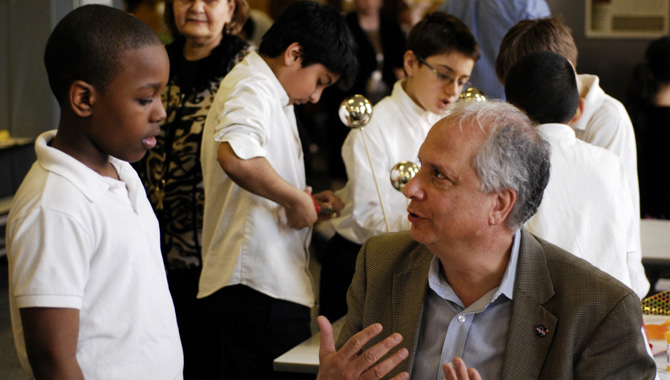
By Ed Hoffman When we’re young, we are excited by our dreams. Our future possibilities seem endless and alluring.

By Ed Hoffman When we’re young, we are excited by our dreams. Our future possibilities seem endless and alluring.
By Ed Hoffman Project-based organizations like NASA have a paradox embedded in their DNA: the tension between the organization’s need for stability and the inherent uncertainty of complex projects.
By Ed Hoffman Eleven years ago, the Government Accountability Office (GAO) issued a report about NASA’s effectiveness—or lack of effectiveness—as a knowledge organization.

In August 2012, NASA Chief Knowledge Officer and Academy of Program/Project and Engineering Leadership Director Ed Hoffman sat down with Hans Mark, from the University of Texas at Austin, and NASA’s Jack Boyd at the Ames Research Center as part of the Academy’s Masters with Masters series.
By Ed Hoffman Who is responsible for the knowledge that NASA creates? Since being named NASA’s Chief Knowledge Officer (CKO) at the beginning of 2012, I have given this question a lot of thought.
By Ed Hoffman What is the most likely culprit in failures to meet grand societal challenges? How do we understand and address the increasing complexity of missions? To rephrase those questions in more general terms: What poses the greatest risk to projects?
By Ed Hoffman Like all large, knowledge-intensive organizations, NASA faces continuous challenges identifying, capturing, and sharing what it knows effectively.
By Ed Hoffman The first International Astronautical Congress (IAC) held on the African continent was a potent reminder that nations seek the benefits of spaceflight for many different reasons.
By Ed Hoffman Many years ago, I was hired to design and implement strategies that supported teams at Goddard. Because performance happened at the team level, the idea was to complement traditional individual-development activities with team support.